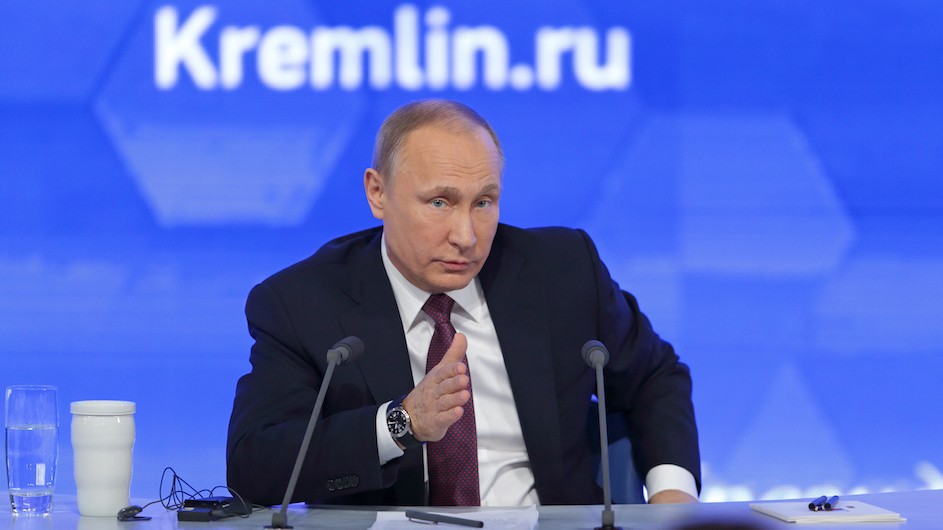Can Russia Win the War of Public Opinion Over Its Aggression in Ukraine?
For years, Putin has been trying to convince the world that Russia is justified in invading Ukraine. Can he succeed?

Russian propaganda is on the defensive in the current crisis in Ukraine. We should never underestimate the Kremlin’s ability to bounce back, but for the moment the Kremlin seems to be at an information disadvantage.
The crux of Moscow’s problem is that, for most Westerners, Ukraine has long been out of the news. After Russia’s 2014 invasion and Ukraine’s bit role in Donald Trump’s pantheon of enemies, Ukraine largely disappeared from the West’s consciousness.
It never disappeared from Russia’s. Vladimir Putin remained obsessed with Ukraine, furious over what he viewed as the West’s hijacking of a Texas-sized territory that had almost always been under Moscow’s control. For the last seven years, the Kremlin has constantly rung alarm bells about an imminent military threat from Ukraine. Its foreign propaganda has never let the subject go.
Thus, when Russia massed an invasion-sized army on Ukraine’s border, it may well have expected the world to see it as an understandable last resort to get the West to pay attention to its concerns. The problem was that few people in the West had paid any attention to Moscow’s years of fulminating. No one in the West seriously expects their countries to launch missiles at Russia from Ukraine or anywhere else. To Westerners, Moscow has picked a fight out of nowhere, threatening Europe with a sudden new war over a conflict dating from distant, pre-COVID times.
This gives the West a useful advantage in the current information war. The best information campaigns are based on simple, bumper sticker-size arguments, and the West has the best one: just one country, Russia, is massing troops for an invasion that will violate European borders and kill thousands of people. In response, Russian propagandists must convince their audiences that Ukraine, for reasons not immediately obvious to most outsiders, represents such an immediate, existential threat to Russia that a bloody mid-winter invasion is somehow reasonable. Russia must construct an explanation for this out of historical and geographical arguments that few foreigners can relate to. And as they say, when you’re explaining, you’re already losing.
This is not to say the Kremlin has no information options. It can adapt long-standing propaganda themes to the current crisis. For years, Moscow has argued that the U.S. is trying to push its allies into war with Russia; that Ukraine is a corrupt, failed state; and that Western countries are frightened and disunited in the face of overwhelming Russian military power. Russian propaganda channels this week offered a raft of sometimes-contradictory claims about Ukraine along just these lines: that NATO is building up its forces along Russia’s borders; that NATO countries are refusing to cooperate with the U.S.; that Ukraine’s president has gone “from peacemaker to warmonger”; that Russia’s military is unbeatable; and that the whole idea of Russia attacking Ukraine is a made-up Western fantasy.
Russia’s best hope for winning the current crisis lies in stoking disunity and fear among NATO governments and populations. It faces a much steeper climb in trying to convince people around the world that it has a legitimate need to invade a smaller neighbor at the cost of many lives.

Thomas Kent, adjunct associate professor at the School of International and Public Affairs, is a specialist on disinformation, Russian media and journalistic ethics. His latest book, "Striking Back: Overt and Covert Options to Combat Russian Disinformation," examines Russian disinformation campaigns in Europe, Africa, and Latin America.
This column is editorially independent of Columbia News.